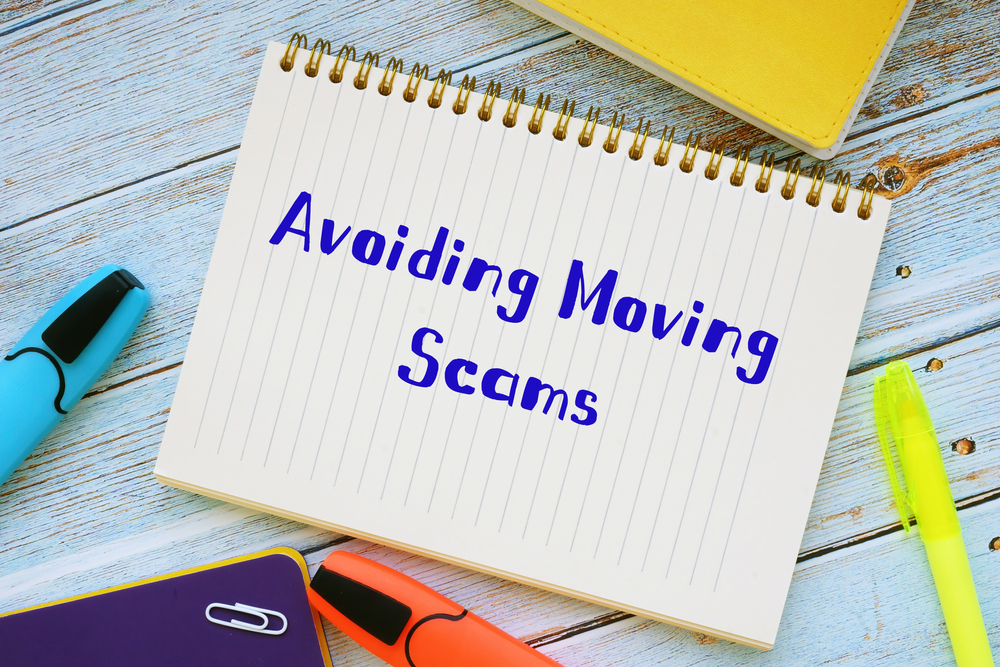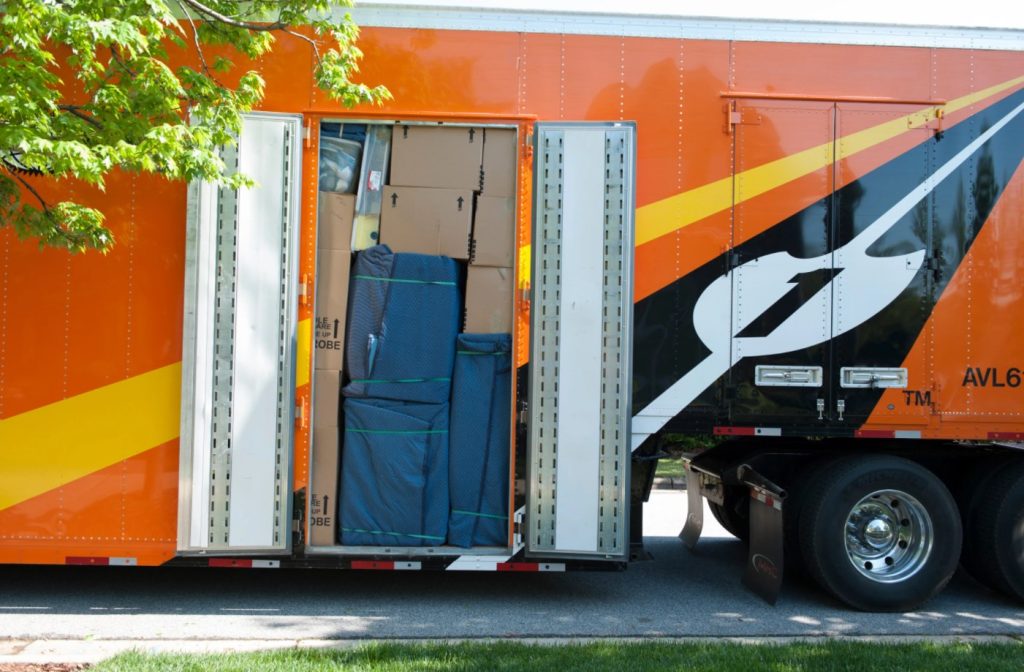Moving to a new place should be exciting, not stressful. Unfortunately, moving scams from dishonest companies can happen. One of the most common tactics is the bait and switch. In this scam, a moving company lures you in with a low estimate, only to jack up the price at the last minute.
Protecting yourself from these scams requires an understanding of how legitimate movers operate. At Nelson Markesbery, we take honesty, transparency, and fair pricing seriously. In this blog, we’ll help you learn how to identify and avoid moving scams like bait and switch.

Bait and Switch Moving Scams That Leave You (and Your Wallet) on the Hook
Typically, a bait and switch scam starts with an appealingly low quote. In today’s expensive world, movers are (understandably) cost-conscious. However, a little bit of healthy skepticism can save you time, stress, and money.
The company will likely provide this estimate over the phone or online, all without having seen your belongings. Once moving day arrives, the movers claim there are additional charges for services that should have been included. They may also refuse to move your items until you agree to a much higher price.
At this point, you may feel like you have no other choice. If your items are already on the truck or you have a tight timeline, you’re literally stuck. Keep reading to learn insights for avoiding moving scams and choosing a reputable moving company.

Red Flags to Watch For
Spotting warning signs is your first line of defense. Here are some common red flags associated with bait and switch scams.
Unusually Low Estimates
It’s an old saying, but it’s still relevant: if something seems too good to be true, it probably is. Scammers use lowball offers to get your business, then add fees later. If an estimate seems low, trust your gut and consider another moving company.
No On-Site or Virtual Inspection
Reputable movers will conduct a visual survey of belongings before providing an estimate. Estimates given over the phone or online without seeing your items is a major warning sign. We offer quick, convenient virtual video estimates.
Large Upfront Deposits
Most legitimate companies don’t require large deposits or cash payments in advance. If a company demands a high upfront payment, be wary. Businesses that participate in moving scams will try to get away with as much as they can.
Vague or Incomplete Contracts
Never sign blank documents or contracts that don’t specify all charges and terms. Scammers may try to get you to sign paperwork quickly or without reading it. These pushy tactics are a red flag for disreputable moving companies.
Lack of Company Credentials
Check for a physical business address, valid licensing (such as a U.S. Department of Transportation number), and insurance. If the information is missing or hard to verify, move on. Nelson Markesbery is fully licensed and insured to protect your items.

Proactive Strategies to Protect Against Moving Scams
In an ideal world, moving companies would operate with honest business practices. By following these steps, you can spot those who don’t and avoid the headache of being scammed.
1. Research Moving Companies Thoroughly
Start your search well in advance. Look for companies with a strong reputation, verified credentials, and positive customer reviews. Check their status with the Better Business Bureau and the Federal Motor Carrier Safety Administration (FMCSA). Use online maps to verify that their business address isn’t just a residential home or a vacant lot.
2. Get Multiple Written Estimates
Obtain at least three written, in-home estimates. Legitimate movers will want to see everything you plan to move before quoting a price. Avoid companies that only offer phone or online quotes without a walkthrough.
3. Insist on a Complete, Detailed Contract
Before moving day, ensure you have a contract that clearly outlines all services, fees, and payment terms. Do not sign anything with blanks or vague language. Keep hard copies or PDFs of all documents. Don’t rely on links that may disappear later.
5. Know Your Rights
For interstate moves, movers are required to provide you with the “Your Rights and Responsibilities When You Move” booklet. If your mover doesn’t offer this, it’s a sign they may not be operating legally.
6. Take Inventory (and Plenty of Photos)
Keep a detailed inventory of your belongings and understand the valuation coverage the mover provides. This will help if you need to file a claim for loss or damage.
7. Ask Questions to Suss Out Moving Scams
A reputable moving company will answer your questions clearly and patiently. If they dodge your questions or provide vague answers, consider it a warning sign.
8. Keep Valuables with You
Always transport valuables, important documents, and irreplaceable items yourself.

What to Do if You Suspect a Scam
If you believe you are being targeted by a bait and switch scam, don’t let the company handle your belongings or pressure you into a contract. Walk away and report the company to the FMCSA’s National Consumer Complaint Database or contact local authorities.
Moving On From Moving Scams
The best protection against bait and switch moving scams is preparation and caution. Take the time to research, obtain multiple estimates, and review contracts thoroughly before relocating to your new space. Trust your instincts. If something feels off, it likely is. A little extra effort before you move can save you from costly and stressful scams down the road.
Key Takeaways
- Always get multiple written estimates.
- Never sign blank or incomplete contracts.
- Avoid movers who demand large upfront payments.
- Verify company credentials and read reviews.
- Keep detailed records and keep valuables close.

Plan Your Move With Nelson Markesbery
Nelson Markesbery is an experienced, trusted professional moving service that puts your needs first. Reach out today for a free, transparent estimate and move with confidence.

